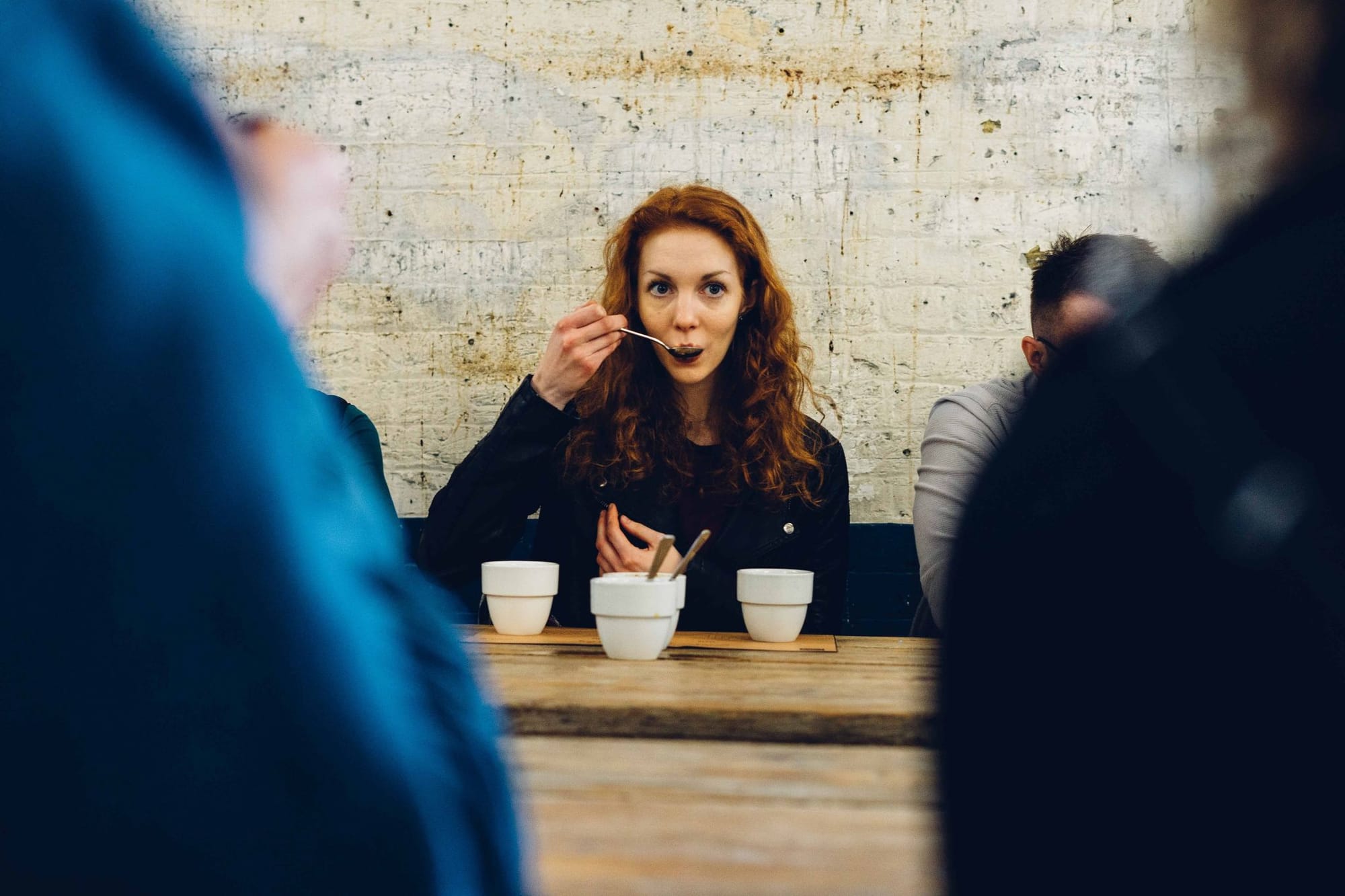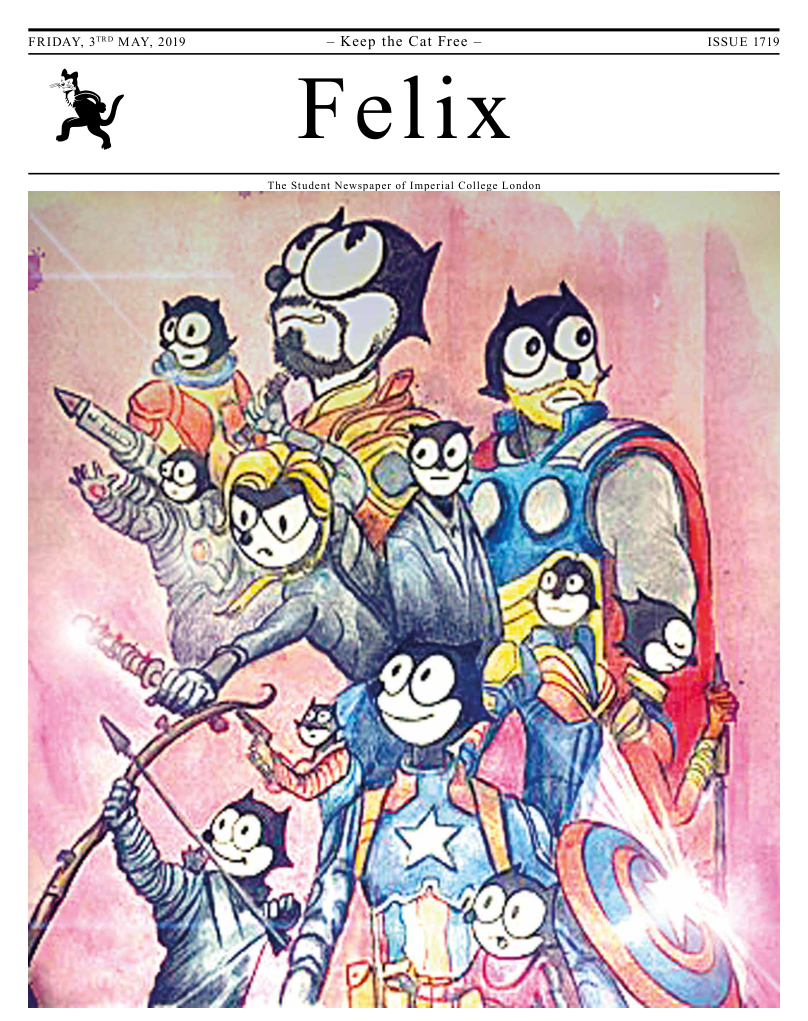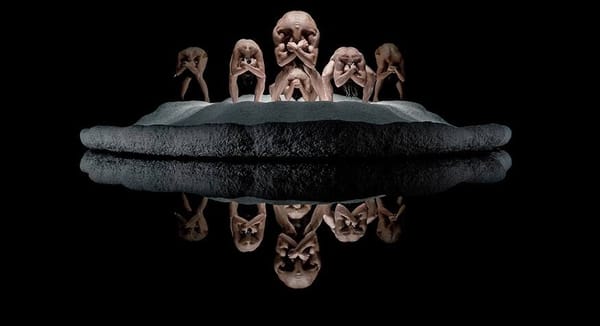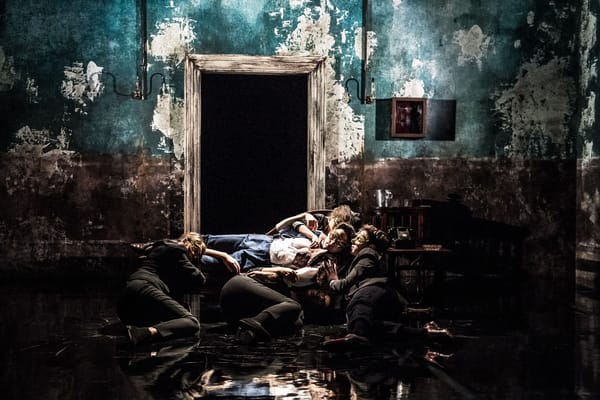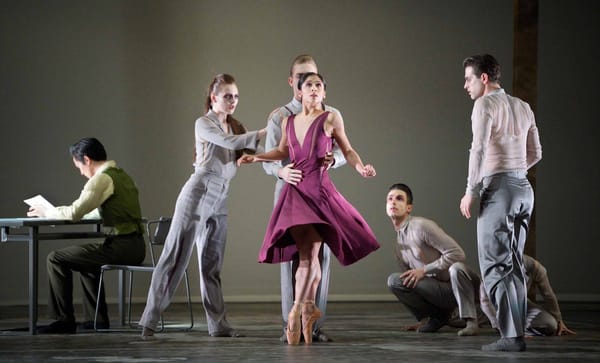London Coffee Festival 2019 | Enter caffeinated heaven

For any hectic Londoner, and especially the sleep-deprived Imperial student, coffee is a staple - if not a necessity - of daily existence. Now in its 9th year running, the London Coffee Festival is a massive celebration of everyone's favourite stimulant. And when I say massive, I mean massive. With four floors and over 250 stands, there's enough coffee packed into one space to make a herd of elephants jittery.
The amazing thing about the festival is how it covers every step of coffee consumption. First the beans, of course. An immense range of single origin beans from Ethiopia to Indonesia, lovingly prepared by roasteries from Cornwall to Birmingham. And then the machines. The latest and greatest technology in coffee-making is on display here. Traditional brands like Gaggia with espresso machines updated for the 21st century barista - think touchscreens and transparent machine bodies where you can watch every step of the extraction process. Automated, fuss-free espresso machines for the home barista. Filters from Chemex to Hario. Wonderful new gadgets like a liquid nitrogen aeration device from Austria.
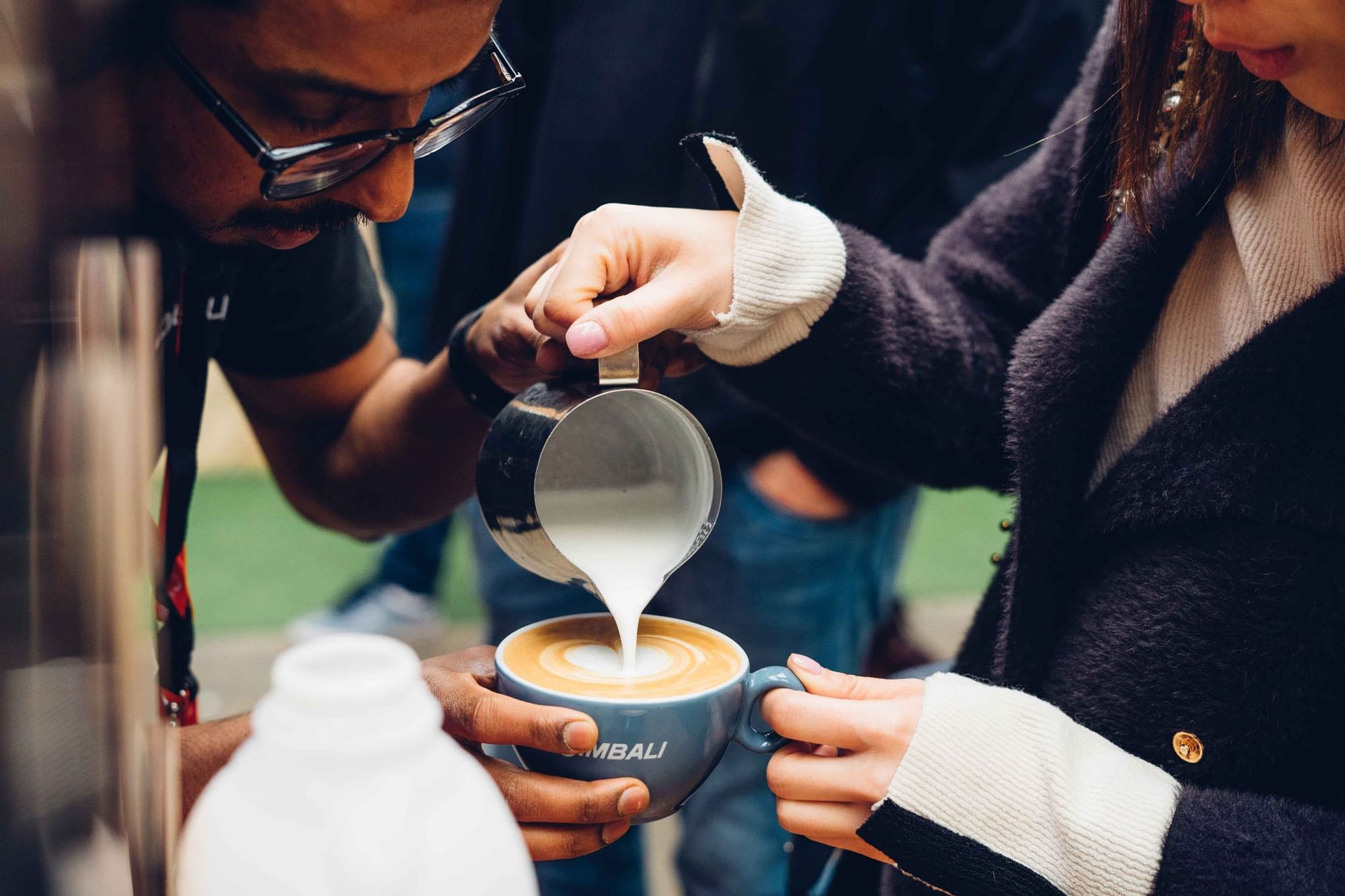
Want milk in your coffee? Not a problem. There's specialty dairy milk from farms like Brades Farm, expressly formulated for the most silky texture. Or if you want to go dairy-free, there's a whole plethora of options. Soy, almond, lactose-free, even macadamia - the possibilities are endless!
It's great. Maybe it's because we're all high on coffee, but everyone's so friendly. You walk around and sample after sample gets pushed into your hand. After uncountable cups of espressos, my hands are shaking and my heart is racing. Maybe there is such a thing as too much coffee after all? Not to worry, for there are - gasp - plenty of coffee alternatives as well. Think turmeric lattes or even mushroom-based mixes. And for those who just cannot handle another shot of caffeine, there is tea, frozen yoghurt, hot chocolate, snacks, and syrupy concoctions available for the taking.
Cold brew, made by steeping coffee grounds in cold water rather than using heat to extract the flavours, has become quite trendy in the last few years. Of course it makes an appearance here. And why stop at coffee, really? It is London after all; one can't escape from the ubiquitous alcohol-ification of everything. Nescafe Azera has a whole masterclass on the use of nitro cold brew (that’s nitrogenated cold brew, which comes ‘on tap’ and looks much like a nice stout) in cocktails - the cold brew mojito is amazingly smooth. A subtle kick from the coffee and the acidity pairs nicely with the lime juice.
The London Coffee Festival is clearly a place for industry / coffee-shop owners to find their feet - we even pass an interior design stall specialising in the light wood, exposed-filament lightbulb coffeeshop vibe - but for the amateur coffee enthusiast it's a fantastic peek into the world of professional coffee brewery. I have an intense discussion with a barista about the lightness of "3rd wave coffee" versus traditional roasts which apparently have "more crema, slight bitterness and less acidity". Another waxes lyrical about the benefits of an machine with double boilers - one for espresso extraction and a separate one for milk foaming, so you have "precise control over the milk temperature". Chatting to the baristas and roastery owners, it's so inspiring to see their overflowing passion for the humble caffeinated beverage. Who knew so much thought and effort could go into a simple cup of coffee?
- Claire Chan
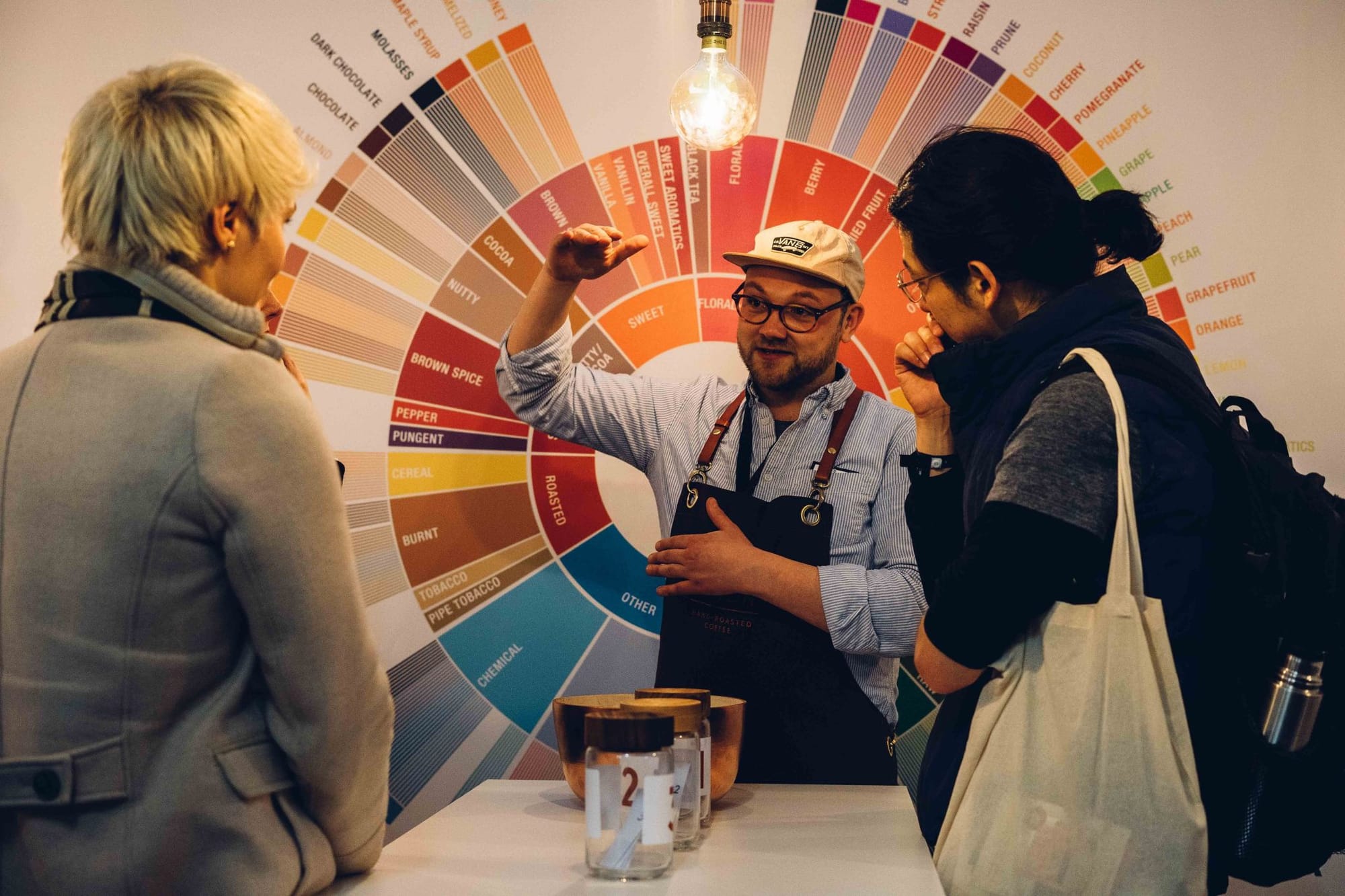
EVENTS
There were a whole host of events of coffee-lovers to enjoy – from latte-making, to coffee cocktail masterclasses, to Q&A sessions with experts, and an art gallery where caffeinated wanderers could fuel their coffee-loving habits through purchasing coffee-related art. Admirably, 50% of all ticket sales to The London Coffee Festival and sales of art go towards Project Waterfall, the charitable component of UK Coffee Week that aims to deliver safe drinking water and sanitation projects for up to 100,000 people, specifically in coffee-producing countries in Africa. There was art made using coffee, art focussing on the importance of coffee in getting us through the day (no one can contest that). There were also some very trippy ones that mimicked the effect of a brain saturated with caffeine – which, I can assure you, was rather effective: it made you doubt whether the painting was mimicking double vision, or whether it was the effect of caffeine on my rather addled brain.
One of the highlights of the festival must be the famed Coffee Masters competition. With the 16 best baristas from around Europe pitched against each other in 8 disciplines, the knockout competition is judged by a panel of industry figureheads with a £5000 prize and the prestigious title of Coffee Master at stake. The first round was ‘The Cupping’ – where competitors had to guess the single origin of 6 different cups of coffee. And who knew coffee tasting could be so intense – each competition took a tiny sip out of a spoon, swirled it around in their mouth, and promptly spat it out into a bucket. As much as I love coffee, I doubt I could tell you the difference between a Guatemalan and a Costa Rican roast, or one from Myanmar vs. Brunei. Secondly, a wheel was spun to determine the method of brewing coffee. The contestants then had to select ‘the right coffee’ to suit the brewing method, and be quizzed intensely by the judges as to the reasons behind their choices and type of flavour profile they were aiming for. The Latte Art discipline then pitched the competitors against each other on visual appearance of the pattern, milk quality and contrast – which I had never considered before. The experience and excitement of watching world-class baristas go head-to-head in mastering the subtle and complex art of perfecting that brew was a memorable one indeed.
Through wandering the stalls and conversing with baristas and stall-owners, there were a few stalls that imparted some words of wisdom to us. The owner of ‘Ngopi coffee’ enthusiastically told us about how coffee beans are not intrinsically ‘good’ or ‘bad’ based on their country of origin, with variation even within individual farms. Instead, the type of roast and brewing method has a large impact on the flavour profile. We also learned from a café and school in Shoreditch that their name ‘7 Grams’ is the perfect weight of beans used in an espresso. Whilst sampling a delightful and rich espresso from them, we found out that the process of coffee making goes through at least 40 people before reaching us - farmers, quality control, grinders, baristas and many more. Finally, ‘Curtis coffee’ had a unique concept of simplifying the types of coffee into different types – sweet, bright, and complex. Their owner, with 7 years of experience under her belt, will then find the best single origin beans to match the flavour profile, and we are consumers trust her palate to find and roast that perfect coffee.
Overall, the Coffee Festival was a friendly, buzzing and caffeine-laden experience that I would love to revisit. It also opened up a new world of coffee-making to us: it showed us the extent and care in which baristas hone their craft, and the passion their have for creating that perfect cup. So many different aspects are involved, from considerations about brewing method, milk and water temperature, grind of the bean, weight of the coffee, length of time brewing and even the types of water used. Mastering that perfect balance of bitterness, body, sweetness and flavour notes is something each coffee connoisseur aspires to achieve, and the complexity of good coffee-making is something I have a newfound appreciation for.
- Elizabeth Thong
